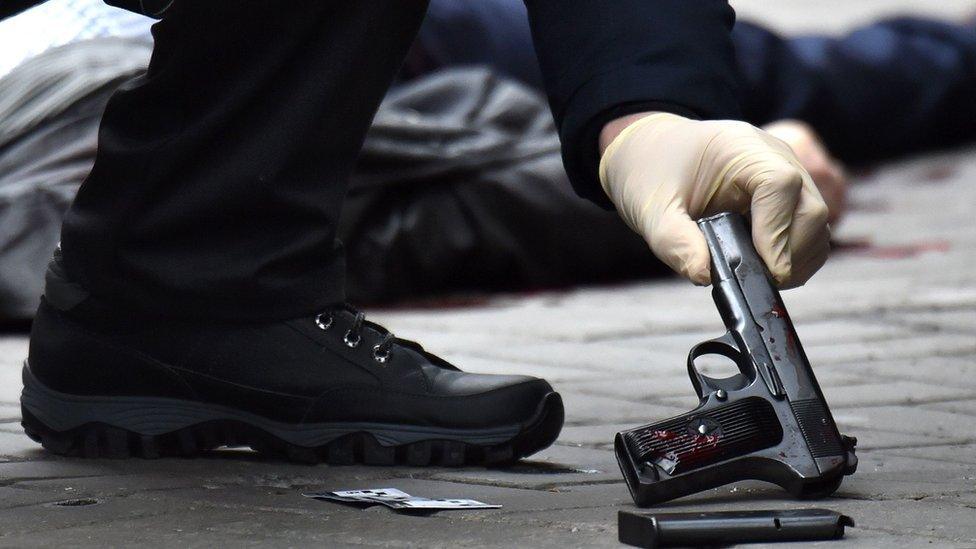Russian spy: Poisoning poses major challenge for MI6
- Published
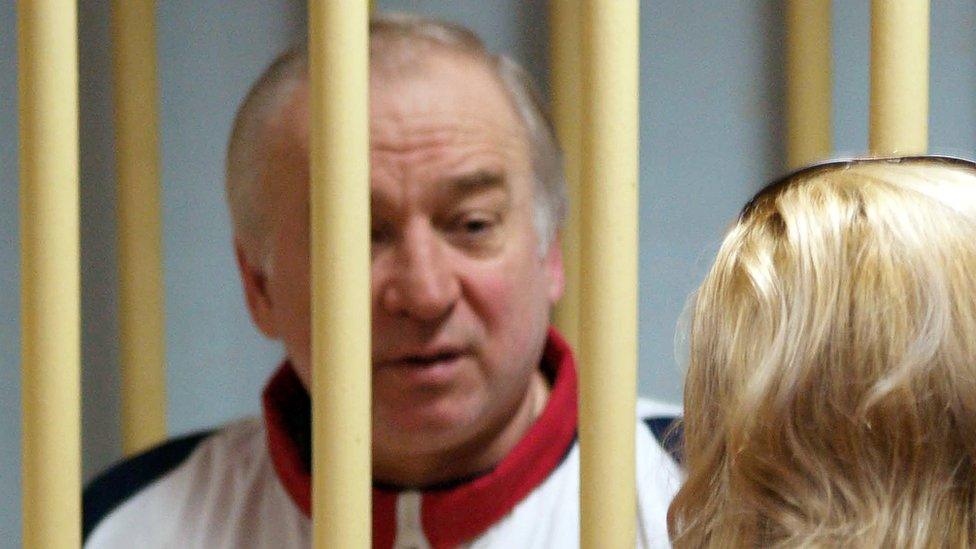
Sergei Skripal was jailed in Russia after being convicted of spying for Britain
The attempted killing of Sergei Skripal poses major challenges for British intelligence. This was a man who had been convicted for spying for Britain, pardoned, released and then targeted to be killed on British soil. The search for a motive remains a key question.
Skripal is thought to have been recruited by British intelligence in the 1990s while serving under diplomatic cover abroad with the GRU - the Russian military intelligence.
He is likely to have provided valuable intelligence at the time - especially the identities of other undercover operatives.
But he left the GRU around 2000 and was arrested in 2004. He was then imprisoned.
After his release in 2010 in the spy swap, he will have been debriefed by British intelligence but there are few signs so far that he was involved in serious ongoing operational work.

Sergei Skripal and his daughter Yulia were exposed to a nerve agent
It has been reported that he may have given the occasional lecture about the GRU but he would have had little fresh operational knowledge about people or events in Moscow since he had retired close to 20 years ago and had spent the last 14 years either in prison or in Britain.
There has even been speculation that he was somehow involved in the famous "dossier" about Donald Trump drawn up by former MI6 officer Chris Steele. But sources close to Orbis - Steele's company - have told the BBC that it had no links with Skripal at any point.
So what does that leave as a possible motive?
Revenge perhaps. Revenge for someone that former colleagues in Russian intelligence will certainly have seen as a traitor for selling secrets to MI6.
And also perhaps a message to others thinking of doing the same.
A message that Russia will one day come for you, wherever you are.
That has been a recurrent theme from Vladimir Putin, a former intelligence officer himself.
It has been pointed out that this case is different because Skripal had been formally pardoned and released as part of a spy swap.
Killing someone after a swap would be against the traditional (unwritten) rules of espionage.
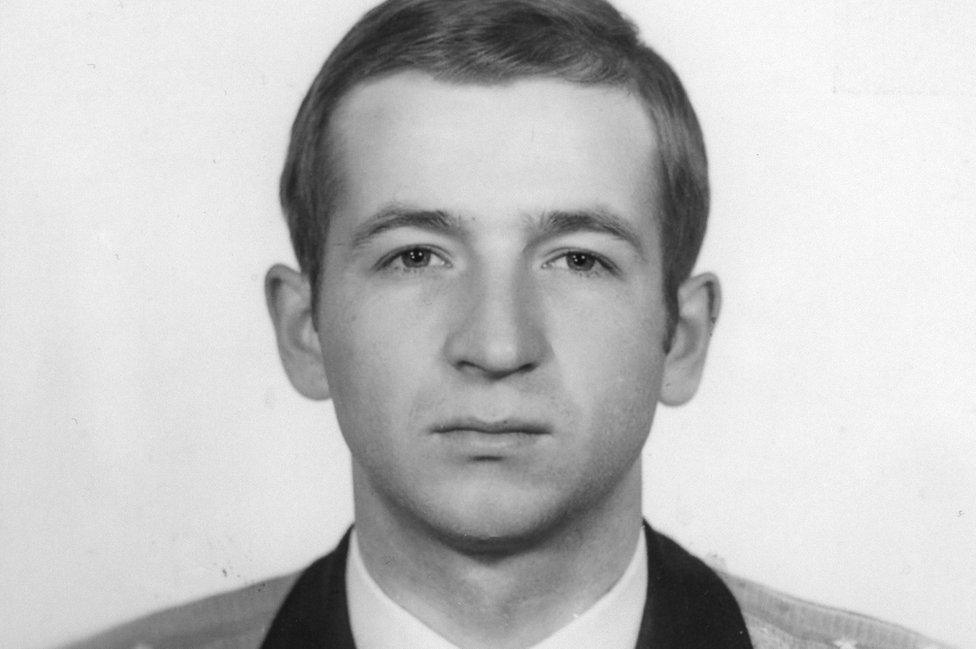
Sergei Skripal had been in the Soviet Airborne Troops before working for Russian military intelligence

Mr Skripal, pictured with his father, was convicted in Russia of spying for Britain
This may be true. But it also neglects the fact that, under Vladimir Putin, Russia has shown a willingness to push the boundaries of what was previously considered acceptable.
The same is true in cyberspace.
Here, Russia is alleged to have been involved in acts like switching off a French TV channel and turning off the power in Ukraine, far beyond the realm of traditional cyber espionage and stealing secrets.
And, even after allegations it hacked US political parties and operatives and released their emails, the same group - linked it is thought to the GRU for which Skripal worked - is said to have continued operating, hacking other countries such as France and, more recently, Germany.
It is almost as if those behind such actions simply do not care about being found and called out about it.
In the past, intelligence agencies talked of wanting "plausible deniability" for their covert operations - being able to say it was not them.
But observers say that with Russia, it increasingly looks as if the intelligence agencies are happy with "implausible deniability" - even if it seems obvious they are behind an act, they simply say "prove it" and try to muddy the waters with misinformation as much as possible.
If the theory of Russian revenge and message sending is correct, it raises difficult questions for British intelligence.
MI6 relies on recruiting agents like Skripal in countries like Russia to provide secrets.
It has always prided itself on keeping the identity of those agents secret in order to protect them.
But if the perception emerges that it cannot protect those agents - even if they are in the UK - then it will make it much harder to do its job and recruit agents to gather intelligence.

Sergei Skripal moved to Salisbury after being involved in a spy swap
A risk assessment is normally made for agents who are resettled in the UK or elsewhere and it is possible the risk assessment for Skripal in 2010 was sensible, based on Russian behaviour at the time and the fact he was swapped.
But there will be questions over whether the risk assessments were reconsidered given changing Russian behaviour.
There will also be challenges for MI5, the security service, more generally.
It puts the bulk of its resources - understandably - into counter-terrorism but there have long been questions about whether this has left enough focus on another part of its job - tracking the activities of foreign intelligence services in the UK.
Counter-espionage was once the core of its work but it may need a significant boost if the service is going to have to contend with the possibility of other states using nerve agents to try to kill people on British soil.
- Published10 March 2018
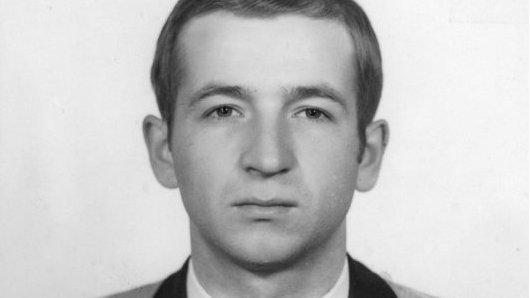
- Published10 March 2018

- Published8 October 2018
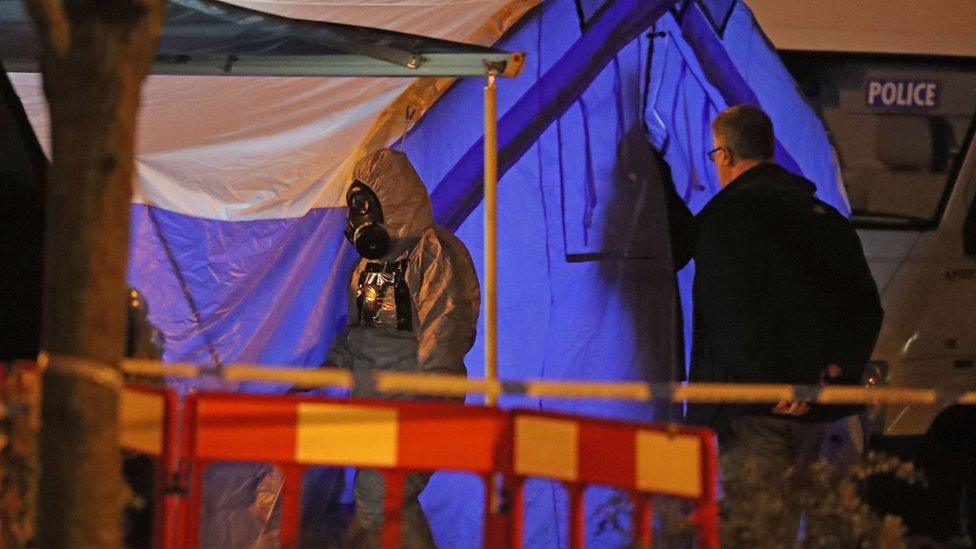
- Published29 March 2018
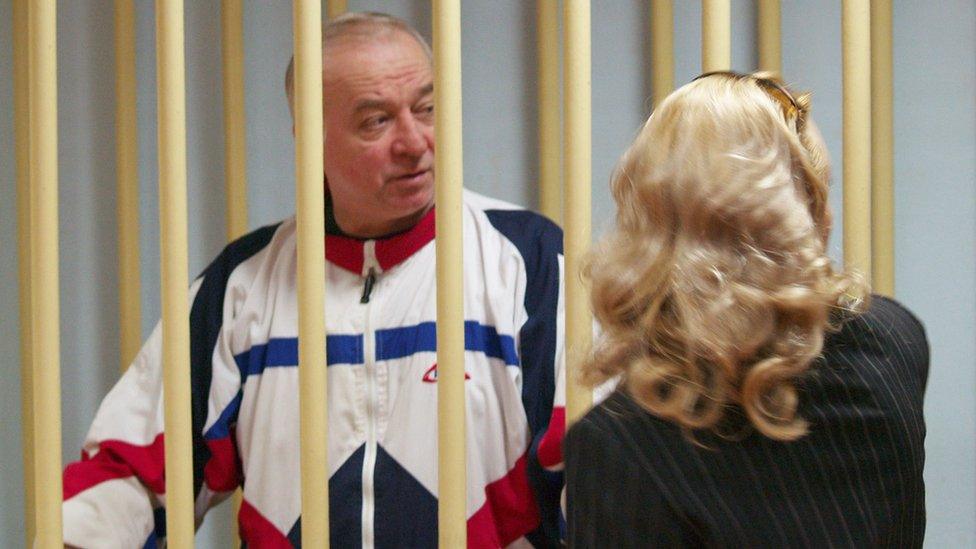
- Published8 March 2018

- Published12 March 2018
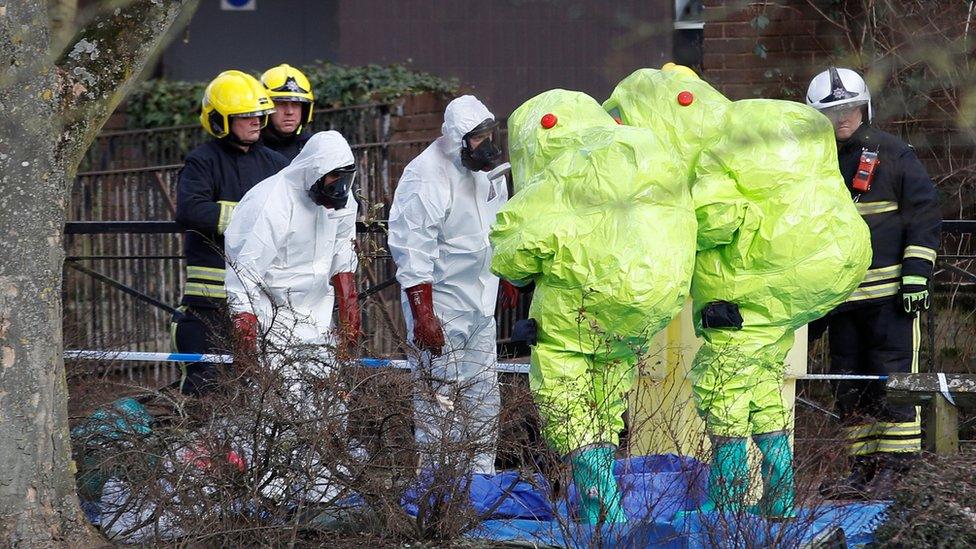
- Published5 March 2018

- Published3 February 2018
